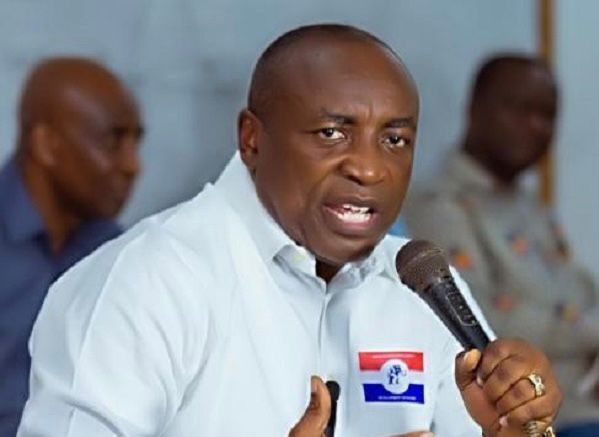Kwabena Agyei Agyapong, a contender for the flagbearer position within the New Patriotic Party (NPP), has outlined his vision for a streamlined and cost-effective government should he be elected President of Ghana. Central to his plan is a significant reduction in the size of the cabinet, limiting it to a maximum of 19 ministers, each with only one deputy. This proposed structure echoes the leaner governmental approach adopted during the presidency of John Agyekum Kufuor, which Agyapong cites as a model for efficiency. He argues that a smaller cabinet will not only reduce government expenditure but also promote more effective decision-making and enhance accountability. This commitment to fiscal prudence reflects a broader concern about the escalating costs of governance and the need to prioritize efficient resource allocation.
Agyapong’s proposal extends beyond ministerial appointments to encompass the staff at the Presidency. He criticizes the current administration for what he perceives as an excessively large presidential staff, contrasting it with the significantly smaller staff maintained during Kufuor’s tenure. He contends that a smaller presidential staff will curtail unnecessary bureaucratic layers, reduce operational costs, and foster a more direct and responsive relationship between the President and the citizenry. This emphasis on streamlining the Presidency underscores Agyapong’s belief that effective governance requires a focused and efficient executive branch, devoid of unnecessary personnel and associated expenses.
While acknowledging President John Mahama’s efforts to reduce the number of ministers, Agyapong expresses disappointment over the sizable presidential staff. He argues that the savings achieved by reducing ministerial positions are negated by the expansion of the presidential staff, effectively maintaining a bloated and costly government structure. He emphasizes that true fiscal responsibility requires a holistic approach to reducing the size and cost of the government apparatus, encompassing both ministerial appointments and presidential staff. This critique highlights Agyapong’s commitment to comprehensive governmental reform and his focus on achieving tangible cost reductions rather than symbolic gestures.
Agyapong also expresses deep concern about the increasing politicization of state institutions, arguing that it undermines their effectiveness and erodes public trust. He laments the pervasive practice of identifying individuals within state institutions based on their political affiliations, viewing it as a detrimental trend that compromises professionalism and impartiality. Using the Ghana Ports and Harbours Authority as an example, he questions the relevance of political affiliations within such institutions, stressing that their primary focus should be on fulfilling their mandates effectively, regardless of the political landscape. He advocates for a depoliticized public sector where appointments and promotions are based on merit and competence, rather than political allegiance.
This stance against politicization reflects Agyapong’s broader vision of a government based on meritocracy and professionalism. He believes that state institutions should operate independently of partisan politics, allowing them to focus on serving the interests of the nation as a whole. This commitment to depoliticization aligns with his broader reform agenda, which prioritizes good governance, transparency, and accountability in all aspects of public administration. By advocating for a merit-based system, he aims to foster a more efficient and effective public sector, free from the influence of partisan politics.
In essence, Kwabena Agyei Agyapong’s campaign platform centers on a commitment to fiscal responsibility, efficient governance, and the depoliticization of state institutions. His proposals for a smaller cabinet, a reduced presidential staff, and a merit-based public sector reflect a broader vision of a more streamlined and effective government, focused on serving the needs of the Ghanaian people. He believes that these reforms are essential for promoting economic growth, enhancing public services, and restoring public trust in government. His emphasis on cutting costs and improving efficiency underscores his belief that a leaner, more focused government is better equipped to address the challenges facing Ghana and deliver on its promises to the citizenry.


